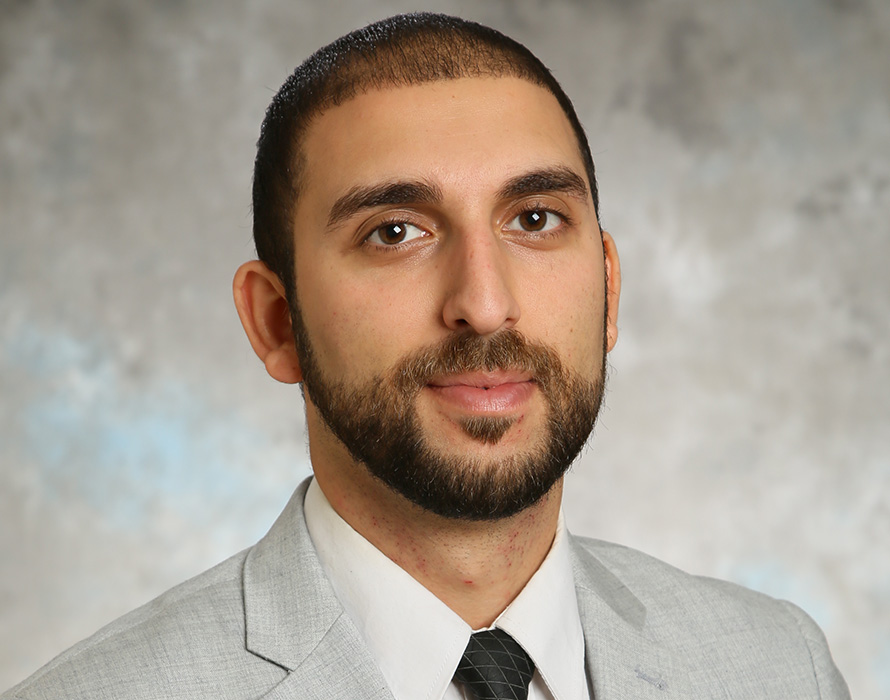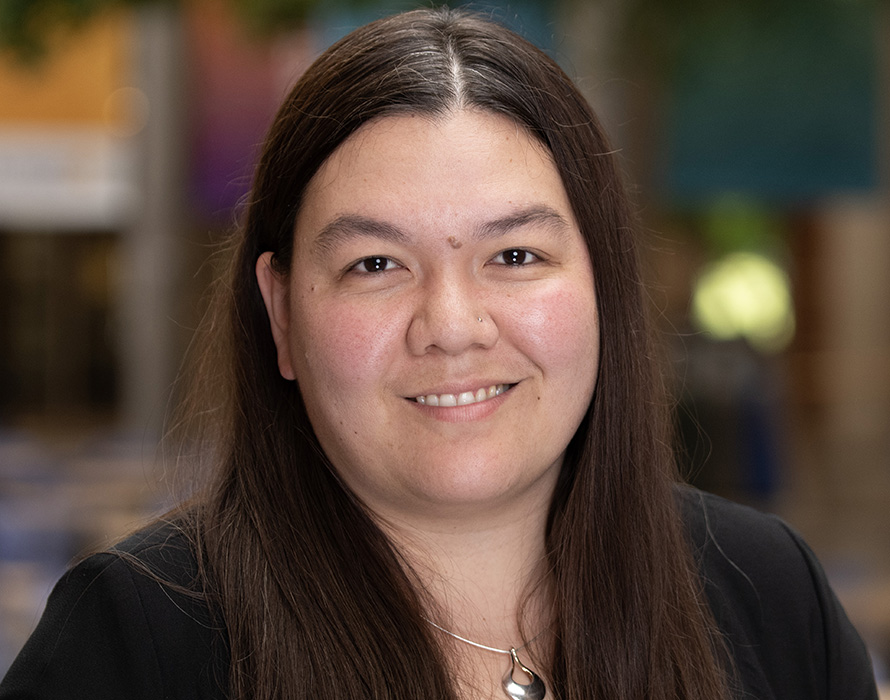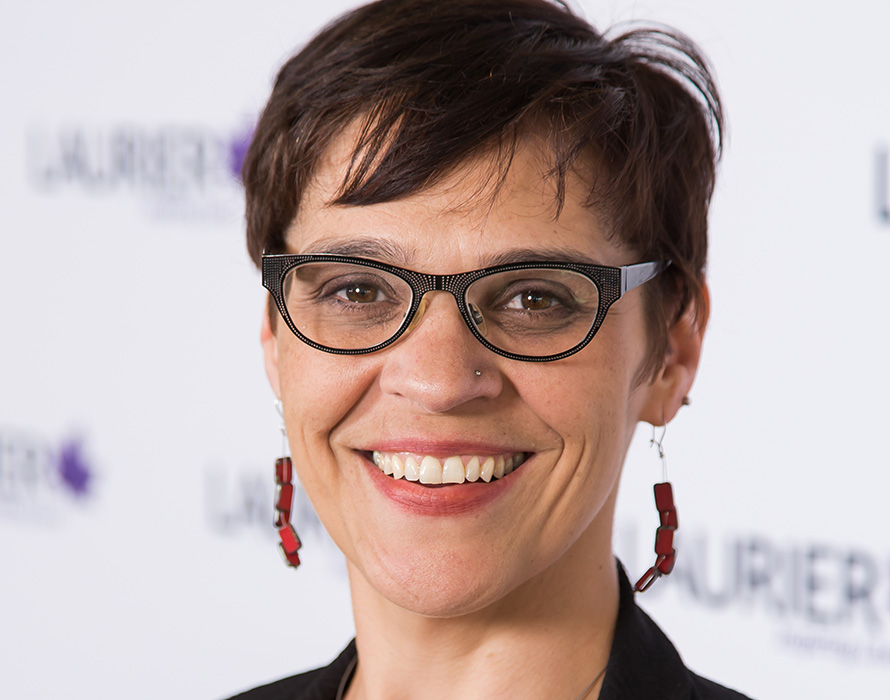We use cookies on this site to enhance your experience.
By selecting “Accept” and continuing to use this website, you consent to the use of cookies.
Search for academic programs, residence, tours and events and more.
April 30, 2024
Print | PDFThree professors at Wilfrid Laurier University are being recognized for their exceptional contributions to research and student mentorship.
Laurier’s 2024 Early Career Researcher Award winners are Ardavan Eizadirad, assistant professor of Education; Melody Morton Ninomiya, assistant professor of Health Sciences; and Deanna Yerichuk, assistant professor of Music.
Each winner was nominated by their faculty’s dean and will receive a $2,500 grant to support their research program.
“Congratulations to these deserving scholars who personify Laurier’s commitment to community-based research,” says Jonathan Newman, vice-president: research. “Across music, education and health sciences, they are working collaboratively to address community needs.”

Eizadirad studies the root causes of inequities and opportunity gaps within education, as well as how education intersects with the health and justice systems.
“I engage in research that pushes the conversation from critiquing systems to finding and piloting solutions,” says Eizadirad.
A prolific author, Eizadirad has written or co-edited five books, with two more forthcoming in 2025. His first book, Decolonizing Educational Assessment: Ontario Elementary Students and the EQAO, prompted Ontario’s Education Quality and Accountability Office (EQAO) to reflect on common assessment practices recognizing and addressing cultural inequities. In 2023, Eizadirad received the Outstanding Publication in Canadian Curriculum Studies Award from the Canadian Association for Curriculum Studies for a book chapter he co-authored, “Neutrality Always Benefits the Oppressor: The Need to Rupture the Normalized Structure of Teacher Education Programs to Diversify the Workforce.”
As the founder and chair of the Equity, Diversity, Inclusion and Indigenization Coalition in Laurier’s Faculty of Education, Eizadirad supports Increasing Teacher Diversity, an annual event that aims to recruit future educators from equity-deserving groups. High school students are invited to campus to experience university life and learn more about teaching as a career choice. On an individual level, Eizadirad mentors students from equity-deserving groups and fosters opportunities for research, leadership and advocacy.
Since 2022, Eizadirad has served as executive director of the Youth Association for Academics, Athletics and Character Education, a Black-led not-for-profit organization focused on education, athletics and violence prevention among youth in Toronto’s Jane and Finch community. He is also a member at large for the Canadian Association for Social Justice Education, enabling him to expand on his research findings and collaborate with policymakers through knowledge mobilization.
“Positive change begins by raising awareness of the systemic barriers and injustices present within educational systems, as told by people with relevant lived experiences,” says Eizadirad. “By identifying the issues, we can advocate for funding and resources to implement solutions guided by data and research, leading to more equitable and inclusive policies and practices that benefit marginalized people and create safer communities.”

“A colleague once told me that if research does not transform the researcher, it is probably not worthwhile research,” says Morton Ninomiya, the Canada Research Chair in Community-Driven Knowledge Mobilization and Pathways to Wellness. “I think that sentiment holds up in my area of research.”
Morton Ninomiya applies a community-led approach to all areas of her research, including her work with First Nations across Canada. She collaborates on projects that address specific health and wellness needs identified by communities, adhering to the principle of “nothing about us without us.” A recent research partnership with West Moberly First Nations brought attention to the negative mental health outcomes of land dispossession for Indigenous communities.
Student mentorship is a key focus for Morton Ninomiya, who created the Interdisciplinary and Indigenous Pathways to Wellness Research Group as part of Laurier's Centre for Community Research, Learning and Action. The group includes undergraduate, master's and doctoral research assistants who Morton Ninomiya brings together on a bi-weekly basis for collaborative planning and discussion. They recently worked with Dehcho First Nations in the Northwest Territories to develop culturally relevant resources for local health care.
Morton Ninomiya also works alongside organizations that provide support to individuals with fetal alcohol spectrum disorder (FASD), a condition resulting from alcohol exposure during pregnancy, and their families. Together with partners in Waterloo Region, health authorities in New Brunswick and First Nations in Labrador, she collaborates on diverse projects related to FASD prevention and transition into adulthood.
Rather than confining her research findings to academic journals, Morton Ninomiya uses community gatherings, social media, lay-language reports, webinars, podcasts and posters to ensure that information is reaching the people who need it and participated in the research.
“I hope that my research will continue to transform people and systems in ways that uphold the rights and values of groups who have been largely ignored, excluded or silenced,” she says.

As a researcher and musician, Yerichuk endeavours to create inclusive, equitable spaces in and through music. She works in the field of community music, which combines music education, activism and participatory projects to enhance communities.
“I am currently examining community music in Canada, trying to understand the competencies that musicians need to work in culturally complex contexts,” says Yerichuk. “What makes this project unique is that we are using video as the research method, creating micro-documentaries of each musician and program that we’re following.”
The first batch of videos will soon be released on YouTube. Among the featured projects are a music production initiative for Indigenous youth in central Alberta called “Naskwahamâtowin: Let’s All Share in the Music”; the Vancouver Adaptive Music Society, Canada’s first and possibly only fully accessible recording studio; Music from Hope, an organization in Toronto that offers music workshops for youth who are new to Canada; and the Community Music School of Waterloo Region, which provides free music education to local children experiencing financial need.
“I want to strengthen the training of musicians so they can work effectively in diverse contexts that integrate decolonial, anti-racist and justice-oriented perspectives in participatory music-making,” says Yerichuk, who serves as coordinator of the undergraduate Community Music (BMus) degree and supervises graduate students.
Yerichuk also specializes in participatory arts-based research. In 2019, she collaborated with the Waterloo Region District School Board on The Gahu Project, which addressed school climates for African, Caribbean and Black students by combining participatory music performance and facilitated discussions on racial justice. In 2020, she worked with an interdisciplinary, international team to produce the digital opera Personal Pandemic.
Yerichuk is director of the Laurier Centre for Music in the Community, which connects research to practice in participatory music contexts. In 2023, she worked with renowned hip-hop artist and Laurier alumnus Shad (Shadrach Kabango) to serve as Laurier’s Hip Hop Artist in Residence, ultimately reaching more than 600 students and community members through interactive events and research talks.
Since 2018, Yerichuk has published six peer-reviewed publications and is working on a manuscript to be published later this year by WLU Press.